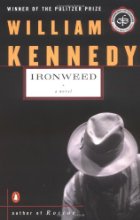Continued from Part I...
One of the most alarming parts of your book comes when your mother leaves you with strangers in order to dedicate herself more completely to the Lord’s work (or Terrell’s work). Did you ever discuss with your mother how her work with Terrell affected her parenting? Did she ever indicate that she regretted her choice? Since your father was largely absent from your life, did Terrell ever become in any way a surrogate father?
I have discussed my mother's choices several times with her throughout my life and she has apologized many times. She absolutely regrets many of her choices. Don't we all? As for Terrell, I say at the beginning of the book that he was as close to a father figure as I would get. Once my mom stopped traveling, he supported our family. We looked forward to him coming home. He was kind to me and my brother. He sold one of his trucks to buy my first car. He was a sort of distant father figure, as were many men of his generation.
How would you characterize the pull that followers feel when their religious leader directs them in ways they believe to be wrong, or strongly misguided?
I think it's like growing up in an alcoholic family. You know something is wrong, you can feel it, but the people you trust keep telling you that everything is okay. And so you are deeply divided. You believe what you are told more than what you perceive, and therein lies the problem.
There is a certain innocence for kids with this kind of upbringing—it was not our choice, after all, to follow this charismatic, but dangerous, leader. What sense do you have of what it does take for an adult to turn her life over completely to a near-stranger?
I think the overall impetus often comes when an individual is seeking meaning, or at least something "bigger" or more important than what he or she finds in everyday life. Once people find someone who seems inspired and willing to provide answers, perhaps they are relieved that they no longer have to carry the burden of that seeking. It becomes the leader's job to provide answers, and the people's job to believe. And of course fundamentalist religion casts doubt in such negative terms. I think that's probably the most negative thing about fundamentalism of all kinds, it discourages doubt and critical thinking. And that leaves people open to the worst sorts of abuse. Perhaps a better, or more helpful, mode of religion would point us all back toward to our own hearts, something like the Buddhist perspective that the answers lie within.
It seems to me that our generation would never give up autonomy in the same way our parents’ generation did. Can you discuss what it might have been about that particular time in history that perhaps produced a certain kind of person who was ready and eager to become a follower?
I think there are people who are always ready and eager to become followers, but I also think that earlier generations were taught be more accepting of authority. We have since seen so much abuse of authority, in almost every institution, that trust seems overly naive. Part of the 1960s ethos was to question authority and perhaps we've carried that forward. However, there are many today who follow the party line without questioning, who accept the politically correct or the conservative point of view without question. I think it's a very real danger to democracy and part of why the cultural divide is so deep.
The book pretty much ends as you come of age. Do you feel that you’ve been able to lead a “normal” adult life? How did your childhood affect you as an adult?
The answer to this question depends on how we define normal. I married, had children, furthered my education and have had what most would deem a successful career--so on paper I sound normal. My childhood has affected my adult life in a myriad of ways--as childhoods do. For a long time stability felt like a kind of death. I've had several failed relationships and marriages. The sameness of day-to-day life grated on me, and sometimes still does. As a result, I don't think I was a great mom--and that is very painful for me. I hate that my childhood has affected my daughter. On the positive side, the Jesus message of housing the homeless, feeding the hungry and clothing the naked has stayed with me. I have a deep empathy with outsiders that I think comes from that emphasis of caring for one's neighbors, with the idea being that we are all neighbors.
Thanks a bunch to Donna Johnson for this interview; I'm looking forward to her next book!








